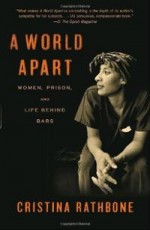My grandmother died this summer.
She was 96 and had lived on her own until age 92, when she suffered a stroke on the same day as her identical twin sister, who was living 800 miles and three states away (and who sadly passed away just a few days later). Because of the selflessness of my aunt and uncle, the last four years of her life she was able to continue to live in her home of 30 years, in Austin, Texas — cared for by the two of them and two wonderful home aides.
Gay Barr Wilkes had a full life and passed away surrounded by people who loved her. Her death is the kind we probably all aspire to; it’s certainly not a tragedy. But it’s still hard. In some ways I lost the Granny Gay I knew my whole life on the day of the stroke that reduced her so much. But I could still hug her and talk to her, and even though she didn’t say my name anymore, I knew that she knew who I was. And I knew that she loved me as much as she always had.
My mom is struggling with mourning both her mom who was and the one who she became in those last years. I am struggling with feeling so far away from my family the vast majority of the time that the force of this important event seems to have only struck a glancing blow. Did I really say goodbye to Granny Gay when I moved 2,000 miles away? I couldn’t make it to say a final goodbye in person, when her body began to shut down and we knew the end was near, but I was incredibly privileged to be able to organize a final farewell — because my family let me design her memorial service.
In the conversations my aunt and I had in the weeks leading up her my grandmother’s death, I asked about plans for the memorial service. I am, after all, training to be clergy: I think about the rituals of life transitions all the time. My grandmother was a woman of faith more than of religion, and since the Methodist minister of the church that she and my grandfather would on occasion attend had since moved on, my aunt wasn’t left with a meaningful choice for an officiant. (Ever the planners, my grandparents had long ago purchased a package with a local funeral home — meaning that the location and other arrangements had long since been finalized.) With many deaths, a non-family clergy member is needed, or just wanted, to hold the space for mourners. My family wasn’t wracked with grief, though; more than that, I wanted to lead the service. It’s something I knew I could do, and do well, for my family. And my aunt was trusting enough to turn it over to me.

a note from my grandmother, in her familiar handwriting, about the picture of us (above) that won a Mother’s Day photo contest in the Houston Post; photo by salem pearce via instagram
Everyone got a part — daughters, sons-in-law, nephews, grandchildren. I was in awe of how eloquent they all were in sharing different parts of her life and talking about what she meant to them. I lost it when her oldest grandson, my cousin Seth, started crying when he spoke about Granny.
He had lived with her and Papa as when he finally finished his undergraduate degree almost 10 years after high school. Discouraged by his slow progress, he complained to her that he would be 27 by the time he finished at the University of Texas at Austin. Her response is a piece of advice I’ve turned to many a time during my winding journey to where I am today. “You’re going to be 27 anyway.” Time passes by regardless, she had reason to know, so you might as well do what you want to do.
Seth also provided an important antidote to the rhapsody that inevitably occurs at funerals. He talked about a time when she was wrong, admitted it, and changed her behavior. Of course, that ultimately makes her even more worthy of praise.
I lived in Austin for five years, from 1997 to 2002, the only of her children and grandchildren there at that time. I got to spend lots of time with her and my grandfather, precious time of eating dinner, doing laundry, and studying at their house. I am thankful that I was smart enough to recognize it even then for the gift that it was. After college I moved to Raleigh, then to D.C., and finally to Boston, my trip up the Atlantic coast taking me farther and farther away from her. I don’t know how much of my new path to rabbinical school she ever understood (and I mean that literally, as she had already begun deteriorating from the stroke when I went back to school), but I am sure she was proud of me to the end.
When I was very young, she told me, “Salem you can be whatever you want to be.” As a child I later slightly reinterpreted her words when my mother announced it was time for bed: “Nope! Granny said I can do whatever I want to do.”
I’ll be almost 40 be the time I’m ordained as rabbi, but I’ll be almost 40 (bs”d) anyway. And I’ll be what I want to be.















What a beautiful tribute. And I’d love to use your Granny Gay’s wise words if I may. She spoke truth.
I would love that. She would, too. 🙂